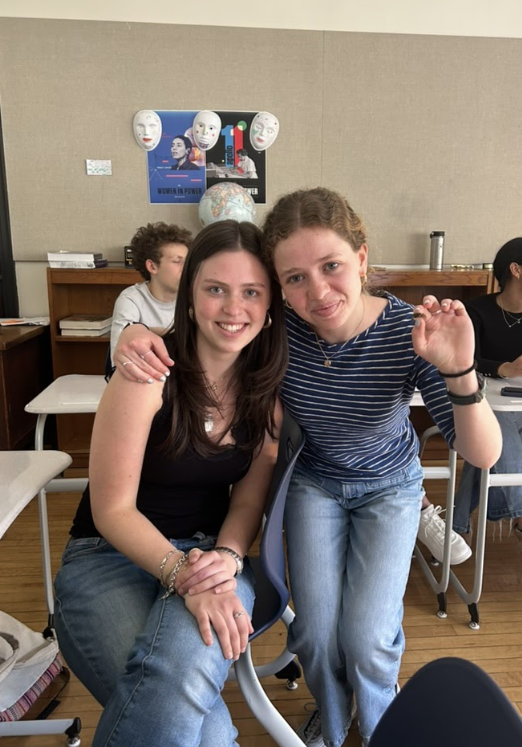On April 25, the Fieldston campus dedicated most of the day to the environment. This day began with an assembly about Earth Day and increasing environmental awareness. In conjunction with the theme of the schoolwide assembly, the Environmental Club ran four Modified-Awareness Day (MAD) workshops that set out to teach our community something interesting and meaningful about our global environment.
Recruiting students to participate has proven difficult, and, as a result, the Environmental Club opted for a new format. “We weren’t getting a good turnout from last year’s Bronx Youth Climate Summit,” co-leader Genevieve Paul shared candidly. In collaboration with her fellow leader, Julia Kurtzberg, the two women curated four workshops to “do something more Fieldston-specific … [it] felt like we couldn’t just let Earth Day (or week) go without some sort of special event as a way of making people start to care more.” The goal seems simple enough and piquing students’ interest by approaching topics of sustainability and Earth-friendly tactics is certainly a promising approach. The workshops explored a macro-level concern that very much affects our generation.
The environmental club billed the first of the four workshops as “Earth Day Planting,” where students planted nutrient-rich flowers and trimmed the flora all around campus with Howard Waldman and Kurt Vega. Smartly, the workshops began with something hands-on that made students realize how many beautiful grasses, plants and trees exist on our campus, let alone the larger world.
The second workshop, dedicated to the organization Brooklyn350, a volunteer-driven group started in 2015, honed in on the specific work that Brooklyn350 and their allies are doing to help climate legislation in Albany. It’s hard to believe how vastly political the environment has become, cutting pollution laws in New York and becoming an example for other states.
The third workshop, titled “South Bronx Unite,” dove into environmental injustice. Many communities that statistically emit the least bear the undue burden of the impacts of climate change. The South Bronx, a close example, has extremely poor air quality and some of the highest asthma rates in the country. As part of the workshop, students put up air quality monitors, including one at Fieldston, to measure this disparity and start a conversation that will affect positive change in the future.
The final workshop of the day focused on salt marsh ecology. Randall’s Island Park Alliance seeks to protect these vital ecosystems by monitoring, maintaining and educating people about their significance. While we think of the environment as public spaces and the health of the plants inside each ecosystem, environmental health also pertains to animals themselves. The Randall’s Island Park Alliance workshop explored marsh fiddler crabs and their pivotal role in salt marshes.
These workshops constitute only a few of the many initiatives that the Environmental Club intends to implement, as they get more students involved in environmental activism and sustainability.






